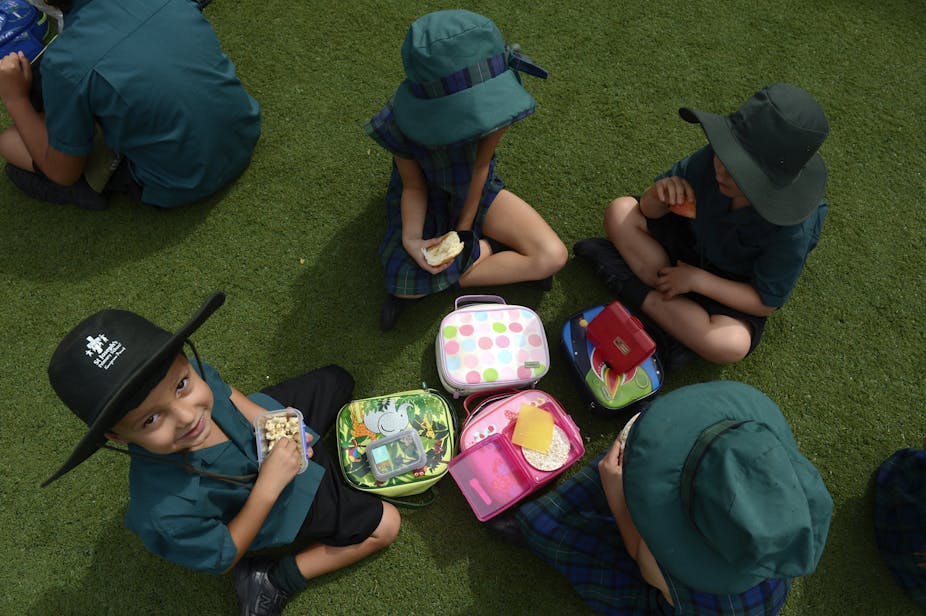Among the many recommendations of the Review of the Australian Curriculum is the view that the curriculum should place “more emphasis on morals, values and spirituality”.
This is a significant outcome of the report. It asks us to focus on a wider and more fundamental question: what sort of people do we want young Australians to be and become? This is a worthy question, which while already being addressed in schools, could be strengthened through a greater focus on character.
Morals, values and spirituality in Australian schools: neglected and inadequate?
The Melbourne Declaration, which sets out the educational goals for young Australians, says students should be taught to understand the spiritual and moral dimensions of life, enabling them “to act with moral and ethical integrity”. The review suggests this has been neglected. It says the Australian Curriculum
fails to adequately reflect the Melbourne Declaration’s belief that a well-rounded, balanced education should deal with the moral, spiritual and aesthetic education of students.
On this basis, the review suggests that the moral dimension of the Australian Curriculum requires some rethinking.

But what, precisely, does this mean? We must be careful that we do not read the review’s comments about the curriculum as meaning that Australian schools are neglecting questions of morals, values and spirituality. What is stated in the curriculum doesn’t necessarily reflect what is really happening in schools.
Every subject within the Australian Curriculum – and particularly subjects like History, Geography, Civics and Citizenship, English and Science – includes a moral element. It is hard, for example, to imagine how it is possible to teach about the use of the atomic bomb in Hiroshima and Nagasaki, the issues associated with climate change, or most key literary texts, without some form of engagement with issues concerning morals and values. Indeed, the current curriculum requires that schools teach students ethical understanding as one of seven “General Capabilities” that sit across the curriculum as themes to be included in school curricula.
Given most schools also set out a list of values on their websites (and these are often posted on corridor and classroom walls!) and underpin their school rules and behaviour policies with values, we can see that the problem is not one of neglect.
Unlike subjects such as maths and English, which have discrete timetabled provision, the teaching of morals, values and spirituality in schools is often implicit.
A focus on character and virtues
Despite the fact that embedded in the culture of most schools is a focus on being good people, as well as good students, the curriculum should be further developed in outlining how to teach morals, values and spirituality.
We should start by thinking about the sorts of people we want young Australians to be. This raises questions about the character traits young people need in order to flourish. The review implicitly raises these issues when it uses the language of “virtues”, “dispositions” and “happiness and the good life”.
The Jubilee Centre for Character and Virtues at the University of Birmingham in England is undertaking the largest research into character education ever conducted in the UK. The centre defines character as:
A set of personal traits that produce specific moral emotions, inform motivation and guide conduct.
It sees character education as being:
about helping students grasp what is ethically important in situations and how to act for the right reasons, so that they become more autonomous and reflective.
This involves students in deciding the kind of person they wish to become and to learn to choose between alternatives.

Character education is not new to Australian schools. The General Capability of Intercultural Understanding requires that students identify and investigate “ethical concepts, values and character traits”. Every day in schools teachers and students discuss a range of matters regarding honesty, truth, loyalty and a range of other virtues. Many schools promote well-being which, while distinct from character education, has the potential to be connected to morals, values and spirituality.
There is, however, potential for character education in Australian schools to be renewed and revitalised. This process should start by recognising not what is missing, neglected or inadequate in the curriculum (as the review seems to do), but by identifying, celebrating and then extending the positive work that schools are already doing to develop young people’s character. Using this as a basis for strengthening the teaching of morals, values and spirituality across schools would provide a better foundation than any deficit model.
If we are serious about young Australian’s moral and spiritual education we must take seriously the question of what it is to live a good life. Once we do this we can get closer to teaching, nurturing and supporting young Australians to explore the sorts of people they wish to be and become.

